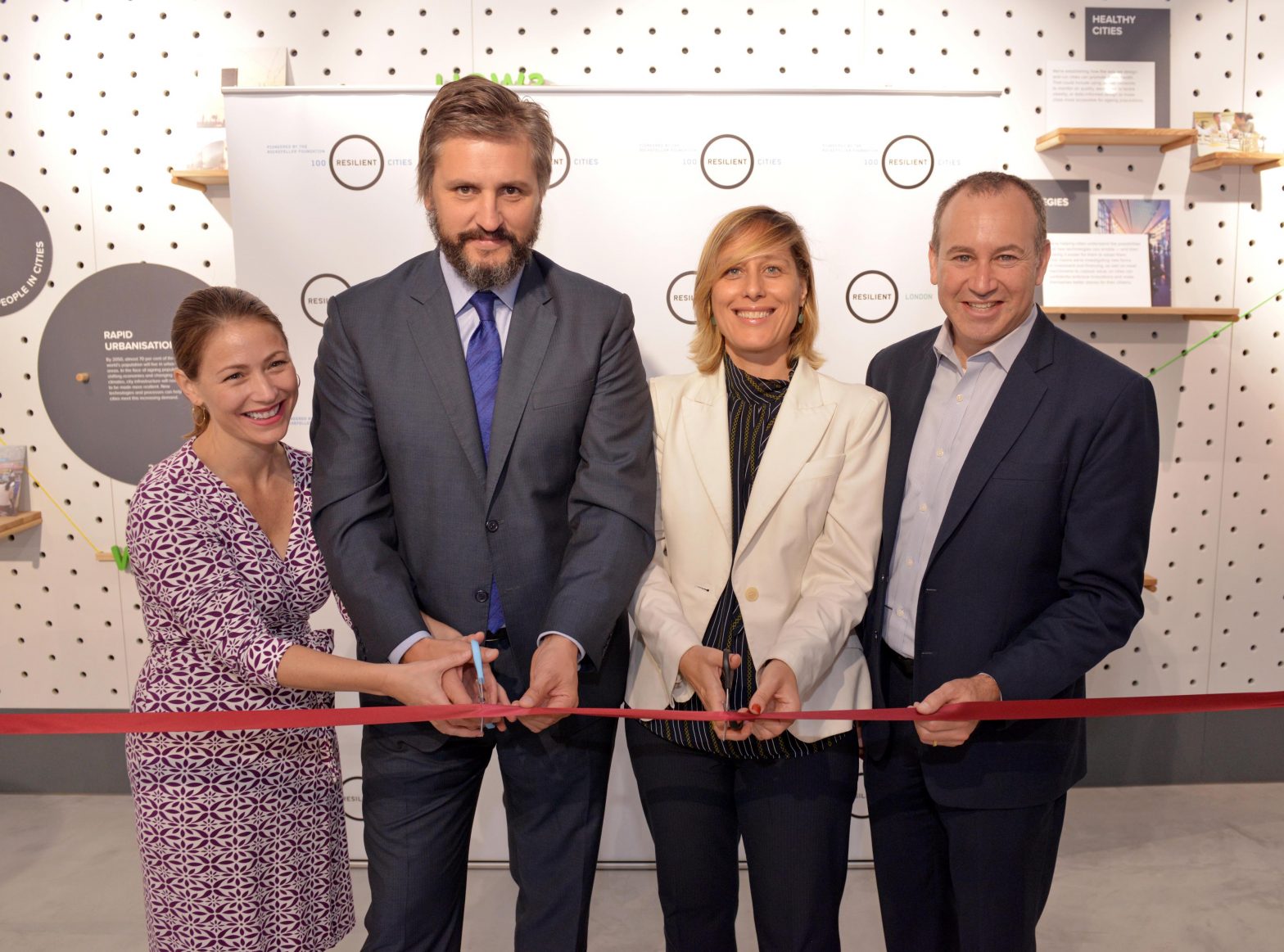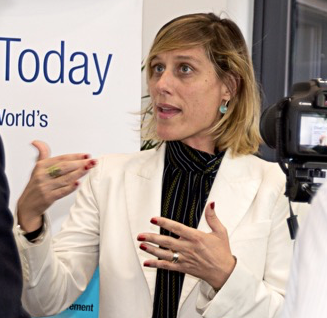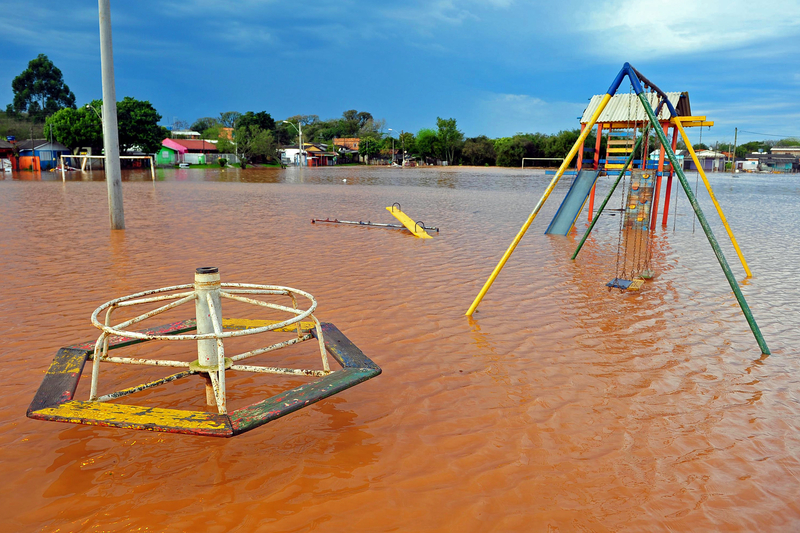
Photo: 39883f97f326381080_qwm6b1z95
100 Resilient Cities opens European office
03 July 2015
by Jonathan Andrews
The 100 Resilient Cities (100RC) network, backed by the Rockefeller Foundation, has opened their first regional headquarters that will serve cities in Europe and the Middle East.
The new office, housed at Future Cities Catapult’s Urban Innovation Centre in London, was officially opened by 100RC President Michael Berkowitz and Cristiana Fragola, Regional Director, Europe and Middle East for 100RC.
“Why London? How can you not?,” Fragola told Cities Today. “When you are talking about London, Europe and the Middle East, it is probably one of the most influential cities in the world and the region. It faces such a wide range of challenges but it can also pioneer solutions for other cities. There is a lot of talent here.”
Fragola added that London’s membership in the 100RC network is helping the city move to address its possible shocks, including terrorism, and current stresses, like cyber-security, social cohesion, infrastructure failure and lack of affordable housing.
The 100RC network includes 13 cities from Europe and four from the Middle East of which all receive four concrete supports including financial and logistical guidance, expert support for developing resilience strategies, access to solutions providers and to other members in the network.

“My role is to make sure the cities have the best support possible to unfold very robust strategic plans to enable them to tackle implementation quite soon,” said Fragola. “We want to maximise the opportunities that the region offers. The EU is just starting to shape the resilience dialogue and I think there is a lot of room for more policy and advocacy and resource mobilisation to cities here.”
In addition to the new London office, two new private sector partnerships were announced with Esri and AIR Worldwide. Esri will assist the 67 global member cities in building resilience through use of geographic information systems, mapping and location analysis. While AIR Worldwide will provide members with catastrophe modelling services and training in catastrophe risk analysis and modelling, to help strengthen their approaches to utilising data to build resilience.
“Cities can’t build resilience out of thin air, and one of 100 Resilient Cities’ key offerings is partnerships with private and public sector partners to better enable cities to plan, adapt and build resilience,” remarked Berkowitz. “We are so pleased to be able to continue growing the suite of tools and services available to cities with the partnership announcements, especially on a day when our organisation marked a significant expansion.”
Fragola also revealed that an office in Singapore would be opening “pretty soon to address our Asia cohorts of cities”. The third and final wave of applications for cities to join the network will open in July.













